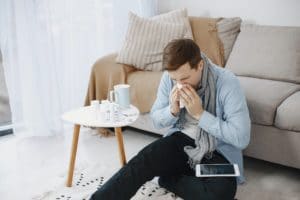
No one likes allergies, especially during spring and summer. Here are a few tips to help you manage your allergies and understand when to see an allergy doctor.
Allergies occur when a person’s immune system has an abnormal reaction to allergens, substances that cause allergies.
An allergen is usually a substance that does not bother most people or only causes minor symptoms or irritates the eyes, nose, throat, lungs, stomach, and intestines for some people.
Allergens can be foods such as peanut butter, milk products, and wheat; pollens from flowers or weeds; mold spores; dust mites found in carpeting and bedding; pet dander from cats or dogs; insect venom such as bee sting toxin; medications such as aspirin or antibiotics; or latex from gloves and condoms.
When Should It Concern You?
1. You Have Other Allergies
If you have a history of allergies running through your family, especially asthma or hay fever, you need an allergy doctor.
2. You Have Breathing Problems
People with breathing problems caused by allergies might be wheezing or coughing at night.
3. You Experience Redness, Swelling, and Itchiness
If you have an allergic reaction to a bee sting and swelling occurs around your mouth, lips, or eyes, that is not normal, which needs to alert you immediately to see a doctor.
4. You are Sore All Over
You may have hives or atopic dermatitis, which is also known as eczema.
5. Your Symptoms are Worsening
For example, if you sneeze all day for several days in a row, that may mean that the allergies are getting worse, and you need to see your doctor.
6. You Do Not Get Better with Treatment
If you are taking over-the-counter medication continuously, but it is not helping your symptoms, you should see a doctor for an allergy test.
7. Your Allergic Reaction Increases
You should see a doctor for an allergy test if you have had allergies in the past, are not feeling well, often coughing, wheezing when breathing, or are having trouble breathing. Your doctor will administer allergy testing through a skin or blood test, which can determine what substances cause allergic reactions and suggest treatments for them.
8. Signs of Anaphylaxis
If your blood pressure drops dramatically, you will need to be taken to the hospital immediately. If your throat tightens or feels like it is closing, call 911 immediately. Anaphylaxis is a life-threatening allergic reaction that can happen within seconds after exposure to an allergen. If you have a severe allergy, use an epinephrine injector such as the Epi-pen.
Symptoms Of Anaphylaxis
- Wheezing or trouble breathing
- Swelling of your face, lips, or tongue
- Anxiety, sense of doom, or feeling faint
- Rapid pulse or heart rate
- Dizziness or loss of consciousness
If you experience any one more of these symptoms, call 911 immediately. It is hazardous and can lead to death. Bring your epinephrine injector with you wherever you go in case of an emergency.
How Can You Prevent It?
1. Avoid Your Allergens
If you know or have an idea of what causes your allergic reactions, avoid exposure to them.
2. Learn When to Use Epi-Pens
An epinephrine injector such as the Epi-pen is a handy device for people with severe allergies. If you are aware of your peanut allergy but consume a nut-based snack by accident, you might experience anaphylaxis if you do not have your epinephrine injector. Therefore, always keep it with you wherever you go.
3. Vaccines Can Help Prevent Allergies
You can also try getting allergy shots or vaccines to desensitize yourself to the allergens that bother you. Allergy shots are given through the skin and contain small amounts of allergens such as pollen or pet dander which can help your body relax and produce fewer antibodies. You would need to go more than once every week for about three years before getting allergy shots.
4. Pets Can Be a Problem
Cats and dogs can cause allergies in many people. If you have a pet, consider getting rid of it for your health’s sake. Also, vacuum cleaner bags that are synthetic or dusty may worsen allergic reactions to animals.
5. Keep House Clean
Remember that dust mites feed on dead skin and can cause allergic reactions. And to always keep your house clean and rid yourself of dust mites.








